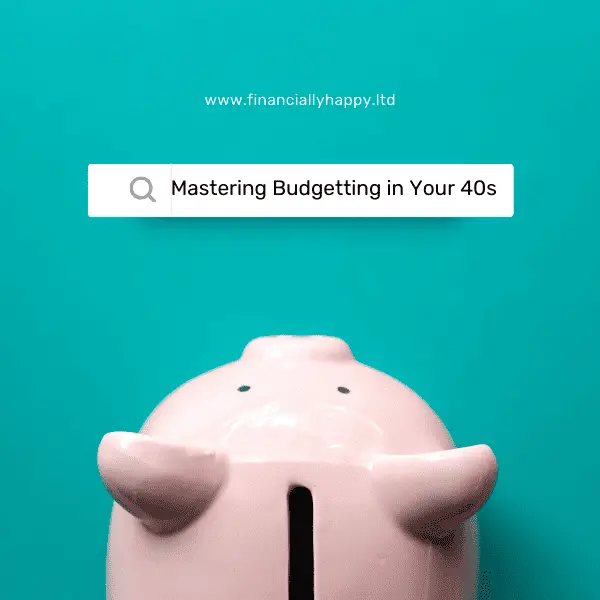The Financial Trinity: Financial Stability vs Financial Freedom vs Independence- Which One Do You Need Most?
Financial stability vs financial freedom vs financial independence are terms often used in discussions related to personal finance.
Although these terms sound similar, they have distinct meanings.
Understanding their differences can help you create a financial plan that aligns with your goals.
This article will explore the meaning of financial stability, financial freedom, and financial independence. We will also discuss their differences and how they impact your financial well-being.
Key points
Financial stability is having a solid financial foundation where you control your expenses, debt, and savings.
Financial freedom is the ability to make choices without financial constraints. It means having enough passive income to cover your expenses and not relying on a traditional job for income.
Financial independence is similar to financial freedom, but it’s about having enough assets and investments to sustain your lifestyle indefinitely, even if you never work again.
While financial stability is a necessary first step towards financial freedom and independence, financial freedom and independence offer greater flexibility and freedom in decision-making.

What is financial stability?
Financial stability refers to a state where your income is sufficient to cover your expenses, and you have enough savings to handle any unexpected financial emergencies.
In other words, it means that you are not living paycheck to paycheck and have a cushion to fall back on if things go wrong.
Achieving financial stability is an important first step in securing your financial future. It provides a sense of security and reduces stress related to money matters.
To achieve financial stability, you must create a budget, reduce debt, and save for emergencies.
What is financial freedom?
Financial freedom is a state where your passive income is sufficient to cover your living expenses. Passive income refers to income generated from sources other than your regular job, such as rental income, dividends, or interest income.
Financial freedom allows you to choose how you spend your time and money. You can pursue your passions, travel, or work on projects that interest you. Achieving financial freedom requires significant effort, dedication, and time.
To achieve financial freedom, you need to invest in income-generating assets, such as stocks, bonds, real estate, or a business. You also need to manage your expenses carefully, so that you don’t outspend your passive income.
What is financial independence?
Financial independence is a state where you have accumulated enough wealth to cover your living expenses for the rest of your life, without having to work for money. It means you can choose to retire or work on projects that interest you, without worrying about money.
Financial independence provides you with a high degree of freedom and flexibility. You can spend your time doing what you love, without worrying about financial constraints. Achieving financial independence requires a long-term commitment and discipline.
To achieve financial independence, you need to accumulate enough wealth to cover your living expenses for the rest of your life.
This can be done by saving, investing, and managing your expenses. You must also plan for potential risks, such as inflation, market downturns, or unexpected expenses.
What are the differences between financial stability, financial freedom, and financial independence?
Financial stability, freedom, and independence differ in definition, goals, and requirements. Here are the key differences between them:
Definition:
Financial stability refers to a state where your income is sufficient to cover your expenses, and you have enough savings to handle any unexpected financial emergencies.
Financial freedom is when your passive income is sufficient to cover your living expenses.
Financial independence is when you have accumulated enough wealth to cover your living expenses for the rest of your life.
Goals:
Achieving financial stability aims to reduce stress related to money matters and secure your financial future.
The goal of achieving financial freedom is to allow you to choose how you spend your time and money.
The goal of achieving financial independence is to provide you with a high degree of freedom and flexibility, without having to worry about money.
Requirements:
Achieving financial stability requires creating a budget, reducing debt, and saving for emergencies.
This is achieved by analyzing your income and expenses, creating a budget, and sticking to it. You also need to work on reducing your debt, whether it is credit card debt, student loans, or other forms of debt.
Finally, building an emergency fund that can cover three to six months of your expenses is crucial to ensure you are prepared for any unexpected financial emergencies.
Achieving financial freedom requires investing in income-generating assets that generate enough passive income to cover your living expenses.
This involves making smart investment decisions and taking calculated risks. You also need to manage your expenses carefully, so that you don’t outspend your passive income.
Achieving financial freedom requires a long-term commitment, patience, and discipline.
Achieving financial independence requires accumulating enough wealth to cover your living expenses for the rest of your life.
This involves saving and investing aggressively, living below your means, and planning for potential risks such as inflation, market downturns, or unexpected expenses.
Achieving financial independence requires a high degree of discipline, determination, and patience.
Strategies for Achieving Financial Stability, Freedom and Independence.
There are a number of ways to reach financial stability, freedom, and independence. It’s just about choosing which one or combination is right for you.
Property
Property investment can provide a steady stream of passive income through rental yields while also appreciating in value over time.
Property investment can also offer tax benefits and a hedge against inflation.
However, it’s important to carefully research and consider the costs associated with property investment, such as property management fees, maintenance costs, and mortgage repayments.
Index investing
Another effective way to reach financial stability, freedom, and independence is through investing in index funds.
Index funds are investment funds that track a specific market index, such as the S&P 500. Investing in index funds can benefit from the stock market’s growth while minimizing risk through diversification.
Index funds also offer low fees and require minimal effort on your part. However, it’s important to remember that investing in the stock market always carries risk, and past performance does not guarantee future returns.
Entrepreneurialism
Creating your own assets, whether they are digital or physical, is another effective way to reach financial stability, freedom, and independence.
Digital assets can include creating a successful blog or YouTube channel, selling digital products or courses, or developing and selling software.
Physical assets can include starting a business or investing in rental properties. By creating your own assets, you can control your income streams and build a sustainable source of passive income.
However, creating your own assets requires hard work, dedication, and a willingness to take risks. It’s important to research and plan your strategies to ensure success carefully.
Mistakes that prevent you from becoming financially free
Financial mistakes can be costly and derail your financial freedom and stability plans. Here are some common financial mistakes and how to avoid them:
- Not setting financial goals: Not setting financial goals is a common mistake. It is important to identify what you want to achieve financially and create a plan for how to get there.
- Not tracking your spending: Not tracking your spending is another common mistake. Knowing where your money is going is essential for creating a budget and staying on track.
- Not creating a budget: Not creating a budget is a common financial mistake. A budget will help you keep track of your expenses and ensure that you are not spending more than you can afford.
- Not investing in yourself: Not investing in yourself is a common financial mistake. Building skills and finding ways to increase your income will help you unlock your financial future.
- Not building an emergency fund: Not building an emergency fund is a common financial mistake. An emergency fund will help you cover unexpected expenses and ensure that you are not taking on too much debt.
- Collecting liabilities and not assets: Assets put money in your pocket. Things like rental properties, stocks in the world’s great companies and businesses. If it doesn’t provide a rising income and go up in value its probably a liability. Cars, clothes, gadgets and other consumer goods are all likely liabilities. Growing your debts is one of the most significant liabilities you can get yourself into.
Creating a GAME plan for your life & financial success.
Having a GAME plan (Goals, Actions, Means, Execution) is an effective way to avoid common financial mistakes and speed up your progress to your favourite future. Here’s how to develop your own GAME plan:
- Set clear financial Goals: The first step is to define what you want to achieve with your finances. Set realistic and specific goals, such as paying off debt, saving for retirement, buying a house, or starting a business.
- Take Actions towards your goals: After setting your goals, identify the actions you need to take to achieve them. This might include creating a budget, reducing expenses, increasing your income, or investing in assets.
- Determine the Means to achieve your goals: You need to consider the means required to achieve your financial goals. This may involve assessing your financial situation, calculating costs, and exploring various options to attain your goals.
- Execute your plan: Once you have a plan, it’s time to implement it. This involves taking consistent and disciplined steps towards achieving your goals, monitoring your progress, and making necessary adjustments.
By following these steps and having a clear GAME plan in place, you can avoid common financial mistakes and achieve long-term financial success.
FAQ: Financial stability vs financial freedom
What is considered financial stability?
It means having a consistent income, manageable debt levels, emergency savings, and a good credit score.
It also involves maintaining a balanced budget and living within one’s means.
Achieving financial stability provides a sense of security and enables individuals and organizations to confidently plan for the future.
What is the difference between financially stable and financially independent?
Financial stability is a foundation for financial well-being, while financial independence is a higher level of financial freedom and security which likley means paid work has become optional.
What is the meaning of financial freedom?
It allows individuals to have more control over their time, pursue their passions, and live life on their own terms.
Achieving financial freedom requires careful planning, saving, and investing to build up enough wealth to sustain a desired lifestyle.
What’s the difference between financially stable and financially secure?
Financial stability is a basic level of financial well-being, while financial security involves having sufficient savings, insurance, and other protections to weather unexpected financial challenges.
What are some financial independence examples?
What does financial freedom lead to?
It allows individuals to have more control over their time and focus on what truly matters to them.
Achieving financial freedom requires discipline and hard work, but the rewards are immeasurable. It opens up a world of possibilities and the ability to live life on one’s own terms.
How can I be financially stable and independent?
Prioritize saving and investing, and consider building multiple streams of passive income.
Educate yourself about personal finance and investment strategies, and seek the guidance of a financial planner or coach if needed.
Avoid unnecessary debt and focus on paying off any outstanding debts as quickly as possible.
Achieving financial stability and independence requires patience, discipline, and a long-term perspective.
What are the five rules for financial freedom?
-Spend less than you earn and create a budget.
-Prioritize saving and investing for the long term.
-Avoid unnecessary debt and pay off any outstanding debts quickly.
-Diversify your income streams and invest in a mix of assets.
-Seek knowledge and education about personal finance and investment strategies to make informed decisions.
Following these rules requires discipline, patience, and a long-term perspective, but they can help pave the way towards achieving financial freedom and living on your own terms.
What are the 7 levels of financial freedom?
-Financial instability: Living paycheck to paycheck and struggling to meet financial obligations.
-Financial stability: Having a solid financial foundation to meet financial obligations without borrowing or outside assistance.
-Debt-free: Eliminating debt and achieving financial freedom from outstanding loans and credit card balances.
-Passive income: Generating additional streams of passive income through investments or rental properties.
-Financial security: Building sufficient savings, insurance, and other protections to weather unexpected financial challenges.
-Financial independence: Accumulating enough wealth and passive income streams to cover living expenses without relying on traditional employment.
-Financial abundance: Achieving financial freedom and abundance, allowing for a lifestyle of unlimited choices and opportunities.
These levels of financial freedom are not necessarily linear and can vary based on individual circumstances and goals. The important thing is to set achievable financial goals and work towards them over time.
What are the 3 important rules for a person’s financial life?
-Spend less than you earn: Living within your means is essential to building a solid financial foundation and avoiding unnecessary debt.
-Save and invest for the future: Prioritizing saving and investing, even in small amounts, can help build wealth over time and provide a cushion for unexpected events.-
-Educate yourself and make informed decisions: Seeking knowledge and guidance about personal finance and investment strategies can help make informed decisions and avoid costly mistakes.
Conclusion: financial stability vs financial freedom
In conclusion, achieving financial stability, freedom, and independence is a goal that many people strive for.
While the road to financial security can be long and challenging, there are various ways to reach these milestones.
Creating multiple sources of income, investing in property and index funds, and developing your own assets, whether digital or physical, can all contribute to reaching financial stability, freedom, and independence.
However, it is crucial to remember that financial planning and management require discipline, patience, and consistent effort.
By implementing these strategies and staying focused on your financial goals, you can work towards achieving the financial stability, freedom, and independence you desire.
If you’ve made it this far, congratulations! You’re already taking steps towards a healthier financial future. But maybe you’re feeling a bit overwhelmed. Maybe the of budgeting, saving, and investing still makes you break out in a cold sweat. Don’t worry, you’re not alone, and help is available.
At Financially Happy Money Coaching, I understand money isn’t just about numbers. It’s about emotions, behaviours, and life choices. That’s why we’re here to help you take the stress out of money and build wealth that aligns with your values and lifestyle.
Whether you’re just starting out on your financial journey or you’re looking to take your finances to the next level, we’re here to guide you every step of the way. I’ll help you understand your financial behaviours, set realistic goals, and create a personalized plan to achieve those goals.
So, why wait? Start your journey towards financial happiness today. Remember, the best time to start was yesterday. The second best time is now.
Click here to schedule your consultation and let’s make your money work for you, not vice versa. 💪💰
Remember, financial freedom isn’t a destination; it’s a journey. And every journey is easier when you have a guide. So, let’s embark on this journey together and create a financially happy future. 🚀💸
📚 Financial Freedom Resources
- The Ultimate Guide To Building Your Savings to $100,000! 📘 is a transformative book that equips readers with principles, strategies, and the mindset 🧠 needed to reach a $100,000 savings goal 💰. It’s a journey towards financial freedom 🚀, challenging beliefs 🤔, embracing new habits 🔄, and overcoming obstacles 💪.
- How to Manage Your Finances: Your Guide to Financial Freedom 📘 is a comprehensive resource packed with practical advice on budgeting 💰, investing 📈, reducing debt 💳, and building wealth 💎. It’s an essential guide for anyone, novice or experienced, aiming to take control of their financial future and achieve financial independence 🚀.
Remember, self-study is a powerful tool for life and financial transformation. Happy reading! 🎉









